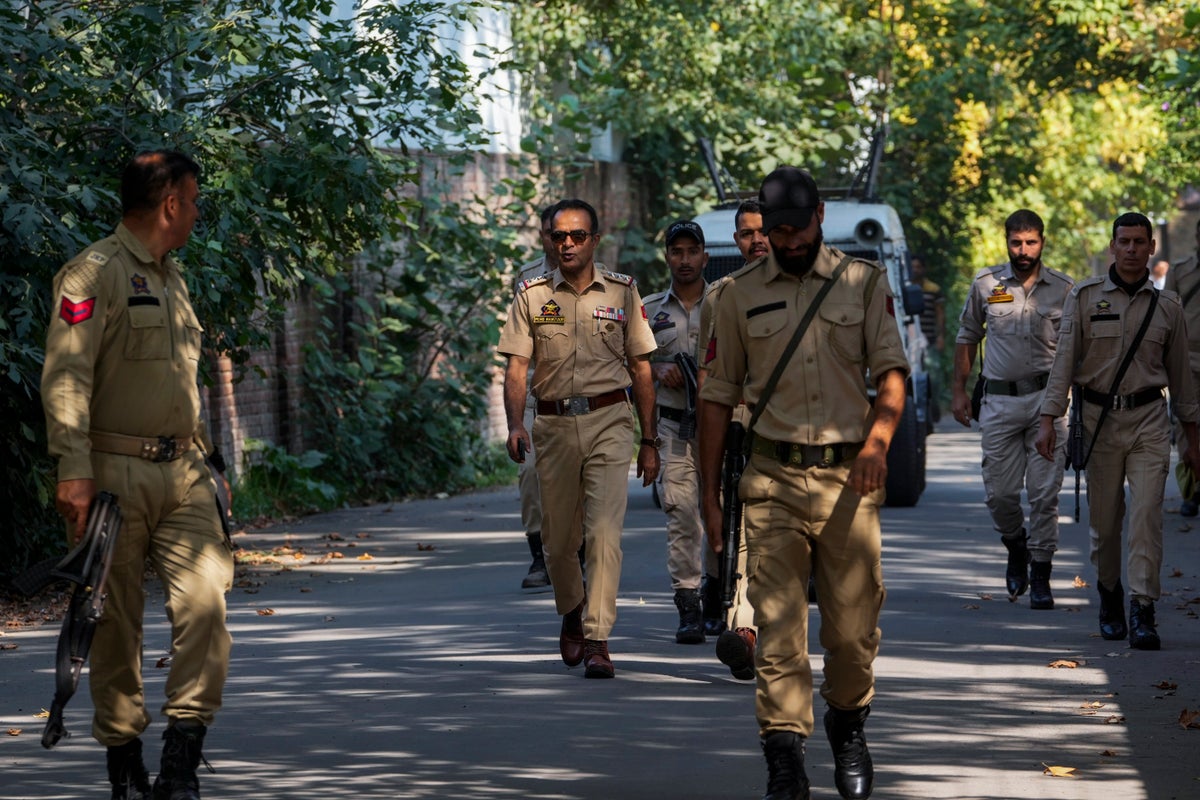
Your support helps us to tell the story
Under elaborate security, residents in Indian-controlled Kashmir began casting their votes Wednesday in the second phase of a staggered election for a local government.
About 2.6 million residents are eligible to elect 26 of the 239 candidates in six districts, including in the biggest regional main city of Srinagar, where voters in some polling booths queued outside early in the morning.
It is the first such election in a decade, and the first since Indian Prime Minister Narendra Modi’s Hindu nationalist government scrapped the Muslim-majority region’s semi-autonomy in 2019. The former state was also downgraded and divided into two centrally governed union territories, Ladakh and Jammu-Kashmir. Both are ruled directly by New Delhi, allowing it to appoint administrators to run them along unelected bureaucrats and security setup.
The region has since been on edge with civil liberties curbed and media freedoms gagged.
The vote also comes for the first time in over three decades without any boycott call from separatists who challenge Indian’s sovereignty over Kashmir. Polls in the past have been marked with violence, boycotts and vote-rigging, even though India called them a victory over separatism.
Authorities erected checkpoints and laid razor wire in the voting districts as government forces wearing flak jackets and carrying assault rifles patrolled the constituencies.
The third phase is scheduled for Oct. 1 and votes will be counted on Oct. 8, with results expected that day. Voting began Sept. 18 with about 59% voter turnout in what the region’s chief electoral officer said was an “incident-free and peaceful" first round of polls.
Authorities have limited access of foreign media to polling stations and denied press credentials to most journalists working with international media, including to The Associated Press, without citing any reason.
India and Pakistan each administer part of Kashmir, but both claim the territory in its entirety. Militants in the Indian-controlled portion of Kashmir have been fighting New Delhi’s rule since 1989. Many Muslim Kashmiris support the rebels’ goal of uniting the territory, either under Pakistani rule or as an independent country.
India insists the Kashmir militancy is Pakistan-sponsored terrorism. Pakistan denies the charge, and many Kashmiris consider it a legitimate freedom struggle. Tens of thousands of civilians, rebels and government forces have been killed in the conflict.
The multistage election will allow Kashmir to have its own truncated government and a local legislature, called an assembly, rather than being directly under New Delhi’s rule. However, there will be a limited transition of power from New Delhi to the local assembly as Kashmir will remain a “Union Territory” — directly controlled by the federal government — with India’s Parliament as its main legislator. Kashmir’s statehood must be restored for the new government to have powers similar to other states of India.







